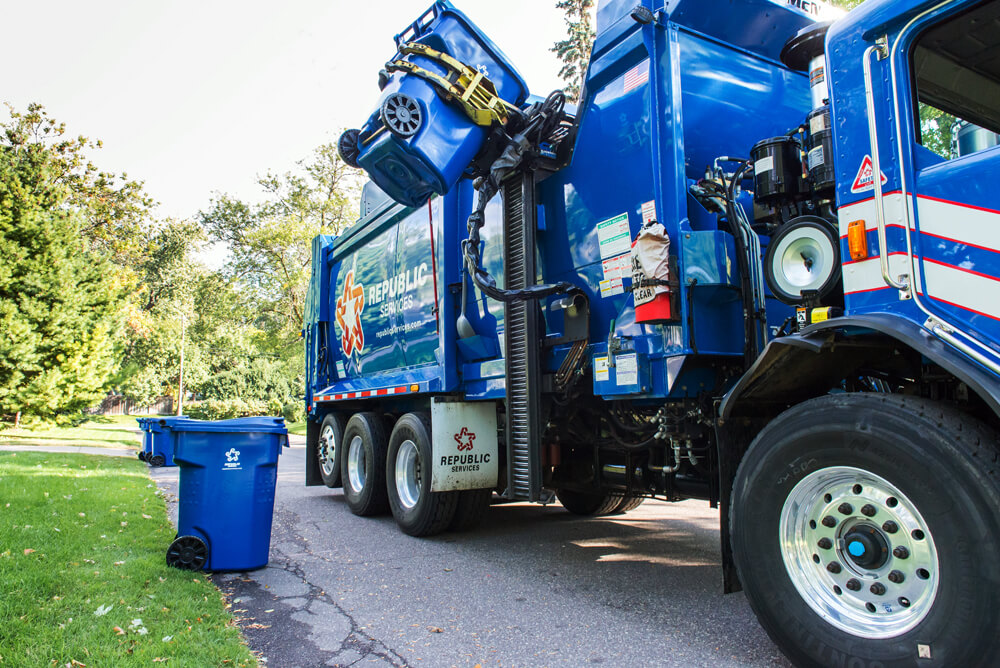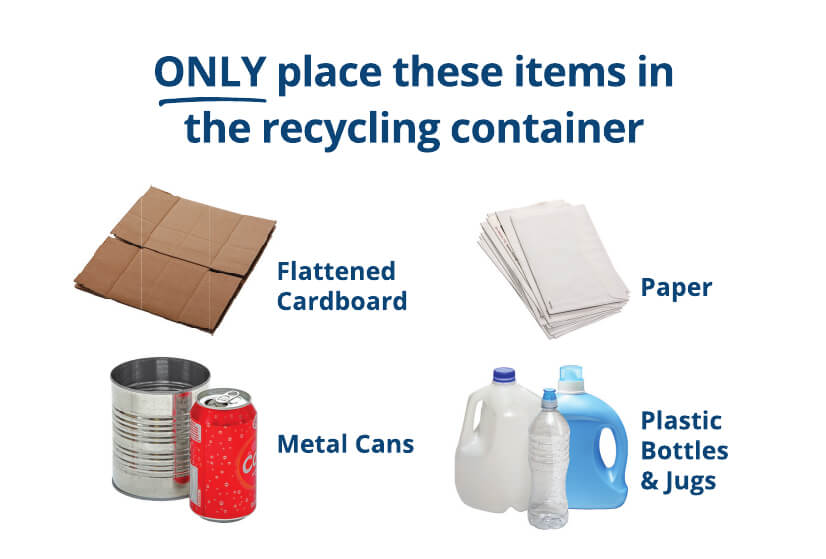
By Pete Keller.
The holidays may be the most wonderful time of year, but they’re also the most wasteful.
Between Thanksgiving and New Year’s Day, Americans generate 25 percent more waste than average. The parties, decorations, gift-giving, and travel generate almost 1,000 pounds of trash per household.
The good news is that Arizonans can do better in 2019 by resolving to reduce, reuse, and recycle. But before you start throwing everything into your recycling container, be sure you’re up to speed and know what – and how – to recycle.
In January and February, as consumers clean up after the holidays, about 20 percent more material is sent to recycling facilities. Much of this material is made of recyclable paper and cardboard, such as shipping boxes, holiday cards and envelopes, shirt boxes, shoeboxes, and wrapping paper. Unfortunately, facilities also see items that do not belong in the recycling stream, including string lights, artificial trees and wreaths, ribbons, and bows. These are not recyclable and can even do damage to recycling sorting equipment.
How to Recycle Effectively
We know local residents have the best intentions and are trying to do the right thing by recycling their household items, but overall, more than one-third of what gets tossed in curbside recycling containers doesn’t belong there.
Many of these items are placed in the bin with the hope that they’ll be recycled or reused. This is known as “aspirational recycling.” Common examples include clothing, wire coat hangers, and plastic toys — all of these items could be reused if donated, but they won’t find a new home if you put them in your recycling bin.
So what does belong in the recycling bin? There are four main categories of recyclables: Paper and cardboard, metal cans including aluminum, plastic bottles and jugs, and glass. With bottles and jugs, leave the caps on or throw them away — they’re too small to recycle by themselves.

All recyclables should be empty, clean and dry. Don’t allow more than one teaspoon of liquid to remain in a recyclable container. Recyclables don’t need to be thoroughly washed, but they do need to be dry so they don’t contaminate other items. Even when an item is recyclable, like a soup can or plastic ketchup bottle, any remaining food or liquid becomes a problem. When those items come into contact with clean recyclables, that leftover chicken noodle soup will saturate otherwise good paper and cardboard. This is known as contamination, and once it happens, perfectly recyclable items become trash and wind up in the landfill.
Also, be sure to keep recyclables loose. Never bag or bundle – items should be placed in the container individually. The sorting process at a recycling center happens quickly, and most of what is bagged or bundled ends up in the garbage because sorters cannot see the contents. Plastic bags should never go in household recycling. They can get caught in the machinery, which causes delays or even damage.
Finally, remember that materials are recyclable when they’re by themselves. Paper envelopes are recyclable, but padded envelopes, which are paper with plastic bubble wrap inside, are not. Likewise, cardboard is recyclable, but cardboard toy packaging with a plastic window is not, unless you separate the materials.
The Most Eco-friendly Ways to Handle some Common Household Items:
Diapers: Clean or dirty, diapers don’t belong in the recycling bin. Throw them away.
Electronics: These items require special handling and shouldn’t go in your curbside bin. Find more information about that www.republicservices.com/electronics-recycling. If they’re still working, donate them for reuse.
Foam packing material: Reuse foam packing peanuts in your own shipments, or be more eco-friendly by using shredded or crumpled paper. Some shipping stores will accept foam packing peanuts for reuse.
Food scraps and yard waste: Food and yard clippings can be composted at home or where commercial composting service is available, like www.republicservices.com/residents/organic-waste. They don’t belong in the recycling container.
Paper coffee cups: Those paper cups are coated with plastic, so they’re not recyclable. The cardboard sleeve can be recycled, though. Better yet, reduce waste by bringing your own cup.
Plastic bags: Plastic bags never belong in the recycling — they can tangle and jam the sorting equipment. Reuse them, or take them back to the store to be commercially recycled. Even better, shop with your own reusable bags.
By following these basic guidelines, you can help do the right thing for the environment and keep Arizona sustainable during the holidays, and all year long.
Pete Keller is vice president of recycling and sustainability at Republic Services.






As we read through the lines, we can hear the gentle notes of responsibility, the powerful chords of change, and the rhythmic beats of conscious choices. Green Living Magazine isn’t just a publication; it’s a conductor, guiding us through the composition of a greener, cleaner world.
There are several ways we can help mother nature, well I guess at least we did our part in recycling some of the stuff like diapers and or ahp.
My husband is complaining that all the projects of our children are not organized in one place, and he thinks that they are all messing around the house. I like how you mentioned that recycling of paper, cardboard, plastic bottles and glass is aspirational recycling as these items are still can be used. Moreover, I think I should know more about cardboard recycling since most of my children are using it weekly and we have a lot of cardboard at home that can be recycled.
Is shredded paper ok? Thinking of security!
& I didn’t know cardboard needed to be flattened. Glad to know about caps being ok On their containers! Very helpful article, thx-
Shredded paper sticks to metal and glass making all useless in terms of recycled material.